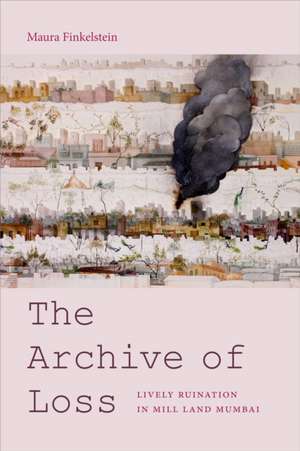The Archive of Loss – Lively Ruination in Mill Land Mumbai
Autor Maura Finkelsteinen Limba Engleză Paperback – 25 apr 2019
Preț: 260.41 lei
Nou
Puncte Express: 391
Preț estimativ în valută:
49.83€ • 52.16$ • 41.47£
49.83€ • 52.16$ • 41.47£
Carte tipărită la comandă
Livrare economică 31 martie-14 aprilie
Preluare comenzi: 021 569.72.76
Specificații
ISBN-13: 9781478003984
ISBN-10: 1478003987
Pagini: 264
Dimensiuni: 189 x 230 x 16 mm
Greutate: 0.36 kg
Editura: MD – Duke University Press
ISBN-10: 1478003987
Pagini: 264
Dimensiuni: 189 x 230 x 16 mm
Greutate: 0.36 kg
Editura: MD – Duke University Press
Cuprins
Acknowledgments vii
A Note on Intimate Geographies xi
Introduction: The Archive of Industrial Debris 1
1. The Archive of the Mill 29
2. The Archive of the Worker 57
3. The Archive of the Chawl 85
4. The Archive of the Strike 117
5. The Archive of the Fire 149
Epilogue: The Archive of Futures Lost 181
Notes 193
References 225
Index 247
A Note on Intimate Geographies xi
Introduction: The Archive of Industrial Debris 1
1. The Archive of the Mill 29
2. The Archive of the Worker 57
3. The Archive of the Chawl 85
4. The Archive of the Strike 117
5. The Archive of the Fire 149
Epilogue: The Archive of Futures Lost 181
Notes 193
References 225
Index 247
Notă biografică
Maura Finkelstein is Assistant Professor of Anthropology at Muhlenberg College.
Descriere
Maura Finkelstein examines what it means for textile mill workers in Mumbai-who are assumed to not exist-to live during a period of deindustrialization, showing how mills and workers' bodies constitute an archive of Mumbai's history that challenge common thinking about the city's past, present, and future.
